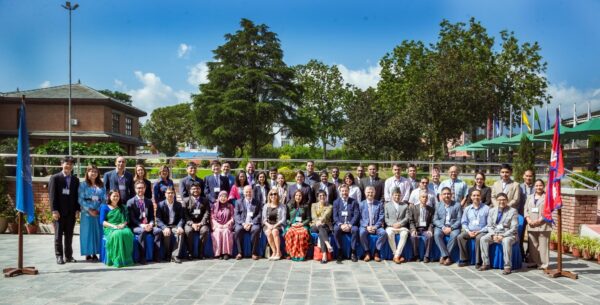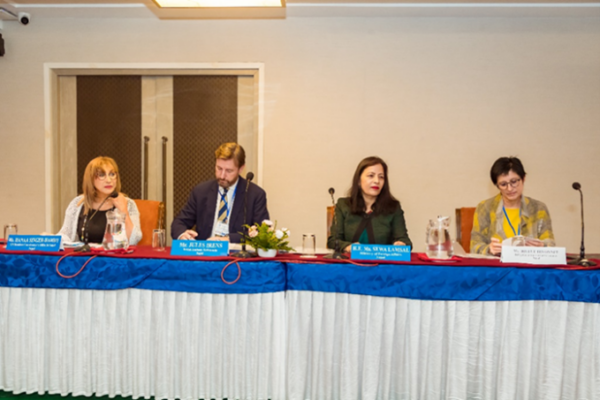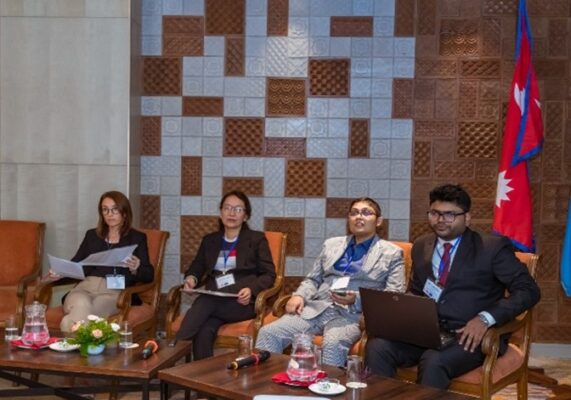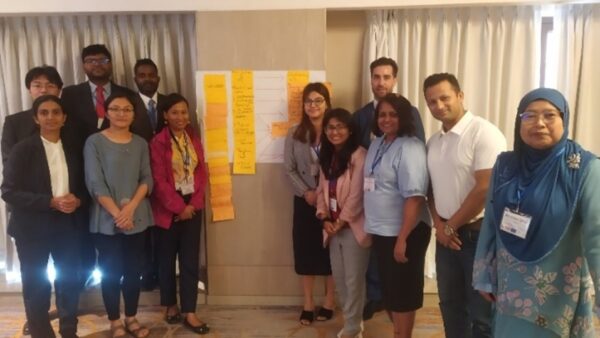Subregional Workshop on Enhancing the Implementation of the Biological Weapons Convention (BWC) in South Asia

KATHMANDU – 2 September 2023
A diverse group of 49 representatives from various backgrounds and organizations convened in a spirit of regional cooperation to strengthen national implementation of the BWC in the South Asia region from 28-30 August, 2023. The event was co-organized by the Ministry of Foreign Affairs (MoFA) of Nepal and the United Nations Office for Disarmament Affairs (UNODA) through its BWC Implementation Support Unit (ISU) and the Regional Centre for Peace and Disarmament in Asia and the Pacific (UNRCPD), with the support from the Government of the United Kingdom and the European Union (EU Council Decision 2019/97). The workshop started with opening remarks from. H.E. Ms. Sewa Lamsal, Joint Secretary and Head of the UN, International Organizations, and International Law Division of the MoFA Nepal. This was followed by dignitaries from British Embassy Kathmandu, Delegation of the European Union to Nepal and the UN Resident Coordinator in Nepal.

Picture 1. Opening remarks delivered by H.E. Ms. Sewa Lamsal (Joint Secretary and Head of the UN, International Organizations and International Law Division of the Ministry of Foreign Affairs of Nepal), Mr. Jules Irens (Regional Political Officer, British Embassy Kathmandu), Dr. Joelle Hivonnet (Chargée d’affaires, Deputy Head of the Delegation of the European Union to Nepal) and Ms. Hanna Singer (UN Resident Coordinator in Nepal)
Session one began with an overview of risks and opportunities posed by science and technology developments related to the BWC presented by Mr. Yusha Araf from Bangladesh. Ms. Yunus Zalini from Malaysia offered some insights by emphasizing on the continuous education and outreach programmes on Country’s BWC obligations for biosecurity, bio risk management and biothreats reduction.
Following an introductory overview of the BWC by the BWC-ISU, UNRCPD led a panel discussion on the Convention’s national execution in South Asia, spotlighting Nepal, Sri Lanka, and the Maldives. Prof. Arunkumar Govindakarnavar from the WHO’s Joint External Evaluations on biosafety and security then spoke to the challenges and opportunities in the region. The representatives of the three States, and the WHO, shared their experiences, highlighted lessons, and addressed common challenges in executing the Convention at the domestic level. During the panel discussion, speakers discussed the Maldives’ current biosafety and security procedures applied to their laboratories and the significance of comprehensive bio-risk evaluations and the crafting of pertinent policies to ensure bio-risk containment and the promotion of safe lab procedures were emphasized. Sri Lanka further noted challenges in achieving unified biosafety visions due to stakeholder coordination.
A specific panel discussion was also dedicated to women and youth roles in strengthening the BWC and biosecurity. Panelists included the two of the Asia-Pacific region’s Youth for Biosecurity fellows. Actionable insights were shared on how women and youth contribute to global biosecurity, and the opportunities for further involvement in decision-making processes.

Picture 2. The panelist discussing The Role of Women and Youth in Strengthening Biosafety and Biosecurity
The next session focused on Confidence Building Mechanisms of the Convention and was facilitated by Mr. Alex Lampalzer, Deputy Chief of the BWC-ISU. Panelists included, the United Kingdom, Sri Lanka, and Malaysia, and they shared their experiences and best practices on the preparation of CBMs. The participants took part in a scenario-based interactive exercise, providing them with a practical understanding of the CBM forms and information to be reported. A fictional scenario and a crossword exercise allowed the participants to identify the information to be reported and to familiarize themselves with the CBM forms, the CBM guide, and the electronic CBM platform.

Picture 3. Active Learning Session: Identifying Assistance Needs and Overcoming Challenges in Requesting and Delivering Assistance
The following session addressed challenges and opportunities related to the Convention’s “Article X – Assistance and Protection Against Chemical Weapons”.
In a breakout session, participants discussed identifying assistance needs, and how this assistance can be requested and delivered through the Convention’s Article X mechanism. The participants were given the opportunity for capacity building through several initiatives, including Article X offers of assistance from the US and UK, as well as opportunities for help from UNODA, WHO, and FAO.
The event successfully contributed to raising awareness on the importance of full and universal implementation of the BWC. The participants learned how to prepare a CBM report, and about the importance of submitting such a report in a timely manner. Participants also gained insights on how to identify, seek and receive support through available mechanisms. UNODA, through its BWC-ISU and RCPD, will continue working with States in South Asia to assist them in their efforts to enhance their implementation of the BWC, to ensure a safer and more secure world for all.
For more information, contact UNRCPD at unrcpd-info@un.org.

